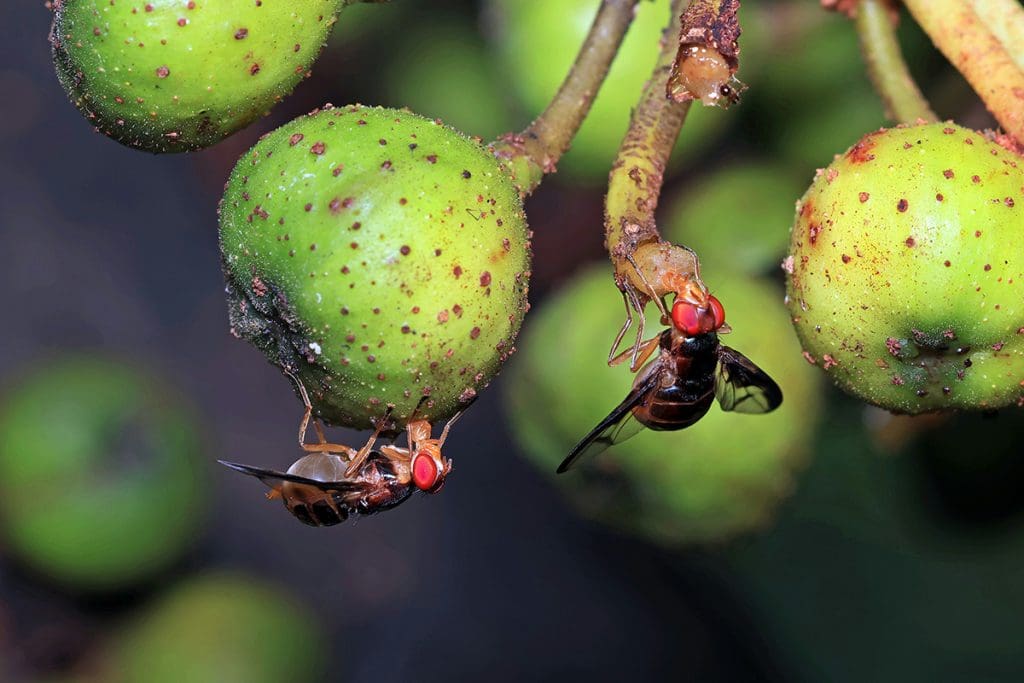15 Oct UW researchers uncover possible new treatment to target a devastating childhood brain cancer
 Using fruit flies, University of Wisconsin–Madison researchers have developed a new model for investigating the genetic drivers of a rare but aggressive brain tumor in children. The work has already identified potential treatment targets for the deadly cancer that has previously had few therapeutic options.
Using fruit flies, University of Wisconsin–Madison researchers have developed a new model for investigating the genetic drivers of a rare but aggressive brain tumor in children. The work has already identified potential treatment targets for the deadly cancer that has previously had few therapeutic options.
“Right now these tumors are incurable, and the standard of care hasn’t changed for 30 years,” says Peter Lewis, a professor in the Department of Biomolecular Chemistry.
The cancer is called pediatric diffuse midline glioma. As its name suggests, the malignancy arises along the midline of the brain or spinal cord and infiltrates surrounding tissue in a way that makes it impossible to remove with surgery. Instead, typical treatment revolves around radiation therapy, and that extends a patient’s life by just months or at most a few years.
The limited treatment options have driven researchers to more closely examine the genetic mutations that cause the cancer to develop in the first place, with an eye on finding ways to disrupt that process.
In the case of diffuse midline glioma, previous research identified mutations in certain DNA-packaging proteins as a likely culprit.
“The mutation in these proteins really derails their gene control systems,” says Lewis. In particular, they disrupt a system that’s so evolutionarily ancient that it operates almost identically in species as distinct as humans and fruit flies.


